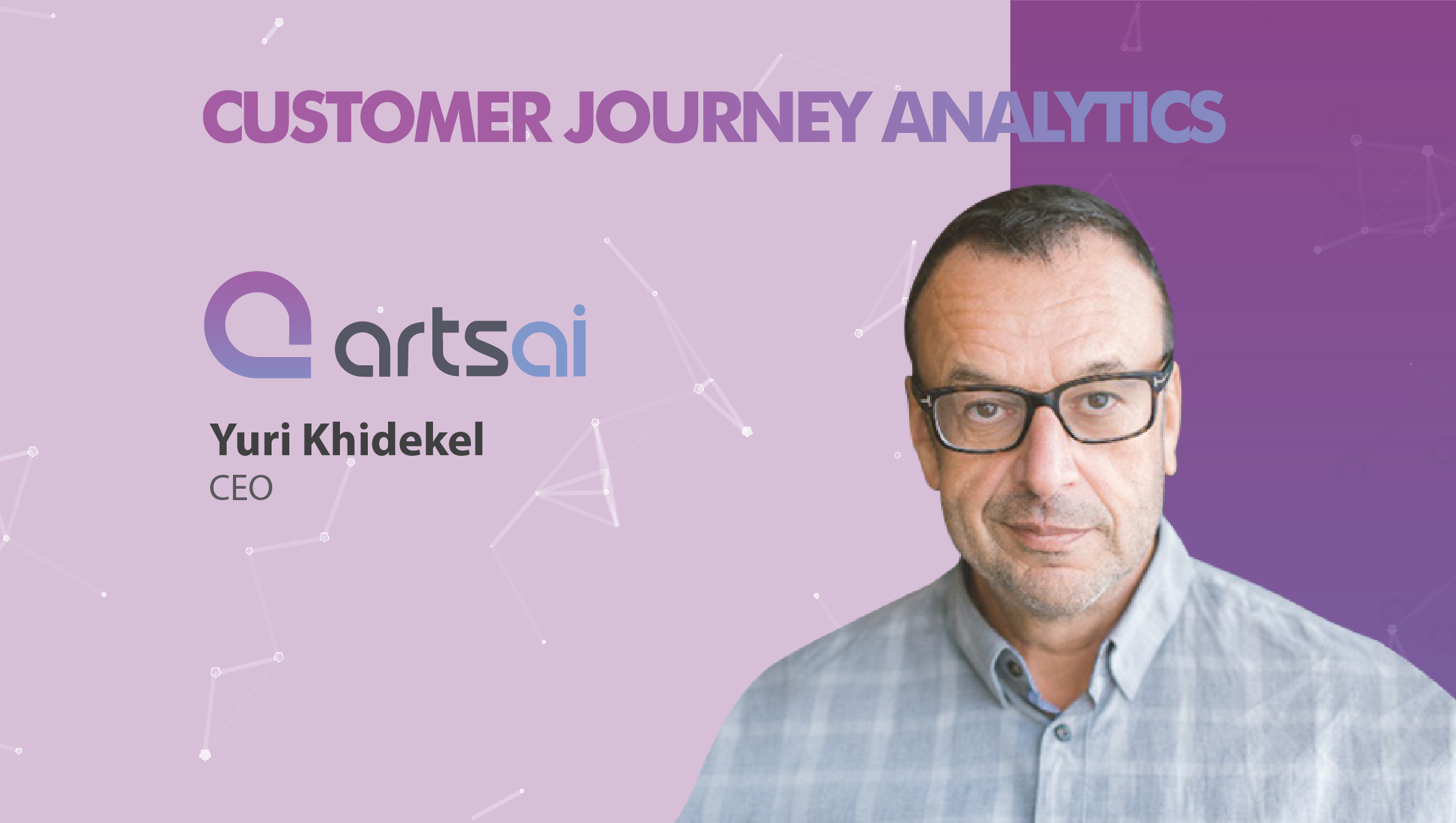Yuri Khidekel
Founder & CEO – Artsai
We are in that phase of utilizing technology where marketers are flooded with various automation solutions for omnichannel successes. From building a performance marketing suite to enhancing overall vision into customer journeys, modern marketers can leverage adaptive marketing solutions for better communication with billions of consumers. To understand how adaptive marketing can transform your programmatic strategies, we spoke to Yuri Khidekel, CEO, Artsai.
Html code here! Replace this with any non empty text and that's it.
MTS: What’s the idea behind conceiving Artsai?
Yuri Khidekel: There’s a huge oversaturation in the marketing industry, with each one of the more than 5,000 companies in the ecosystem addressing each tiny piece of the marketer’s need including various type of inventory, creatives, data management, analytics, attribution, optimization, etc. Brand marketers are currently juggling an average of five to ten disconnected marketing technologies and vendors. This not only creates major inefficiencies and increases integration costs, but at the same time decreases campaign performance and revenue because these products cannot share data and optimize overall marketer’s ROI.
Artsai, on the other hand, is user-centric and focuses on optimizing the whole customer digital journey rather than on disconnected marketing functions. We call our approach adaptive marketing automation as we adapt marketing to the whole user digital journey instead of splitting it into disjoint pieces. Artsai’s AI enabled stack of solutions continuously tracks user engagements across all digital environments and optimizes the next user engagement with the marketer based on previous user engagements replacing multiple disconnected marketing products. Brands and publishers can now seamlessly optimize creative content to each individual customer engagement across different digital environments, rather than having to juggle multiple disconnected platforms and try to reconcile them with each other (as with the traditional marketing stack). This makes for a much more efficient use of time, money, and resources, while at the same time providing an individualized marketing experience for each user.
MTS: What’s the future roadmap for Artsai in AI-enabled customer journey analytics?
Yuri: Right now, as we come out of stealth mode, we’re focusing most closely on using our patent-pending technology to help as many brands as possible deliver their message as efficiently as possible.
We actively work on realizing the full potential of our machine learning technology so that we could learn better from the past user engagements and generate even better insights for our customers.
It’s also important to note that while analytics is an important part of what we do, we are much more than an analytics company.
MTS: What markets are you targeting to maximize Artsai’s reach?
Yuri: When it comes to marketing, one-too-many doesn’t work well anymore. Delivering personal experiences, whether they be digital or in real life, is important. For a big brand, this is key, as it makes the consumer experience feel individualized and personalizes the brand itself.
Artsai is excited to work with brands who are looking for this kind of one-to-one feel and personalized approach: with our product, brands of any size can leverage our wealth of data to create optimized creative and content for each individual user–at every step of their journey–all using AI.
MTS: Tell us about Artsai’s product suite?
Yuri: Artsai has two 75-page patents pending and our adaptive marketing automation technology is powered by an interconnected artificial intelligence marketing stack, which performs multiple marketing tasks, such as new customer acquisition, user retention, retargeting, re-engagement, app monetization and content optimization.
With our technology, the entire customer lifecycle is optimized as a whole and adapts as the user travels through the various stages of their journey.
Brands and publishers can seamlessly adapt creative content and track audiences across different digital environments, including programmatic exchanges, social media, premium publishers and marketer’s own digital properties. This ultimately allows brands to maintain a hyper-relevant and consistent consumer conversation.
MTS: How do you see yourself competing against the more established AI-centric martech companies?
Yuri: Well, for one, our technology is all-new! Artsai is the first user- centric company to use AI to optimize the entire customer digital journey and consolidate the dated and incredibly inefficient marketing stack.
To date, marketing companies have really only used artificial intelligence to focus on improving campaign performance — they’ve missed the bigger opportunity to fundamentally change the overall marketing stack, by holistically optimizing the entire customer lifecycle journey. We are focused on making everything simpler by reducing the number of disparate platforms brands need to operate to help them run more efficiently, increasing their revenue and reducing their marketing costs.
MTS: Thanks for chatting with us, Yuri.
Stay tuned for more insights on marketing technologies. To participate in our Tech Bytes program, email us at news@martechseries-67ee47.ingress-bonde.easywp.com
Also Read: TechBytes with Agatha Rymanowska, SVP, Enterprise Operations, Conversant











